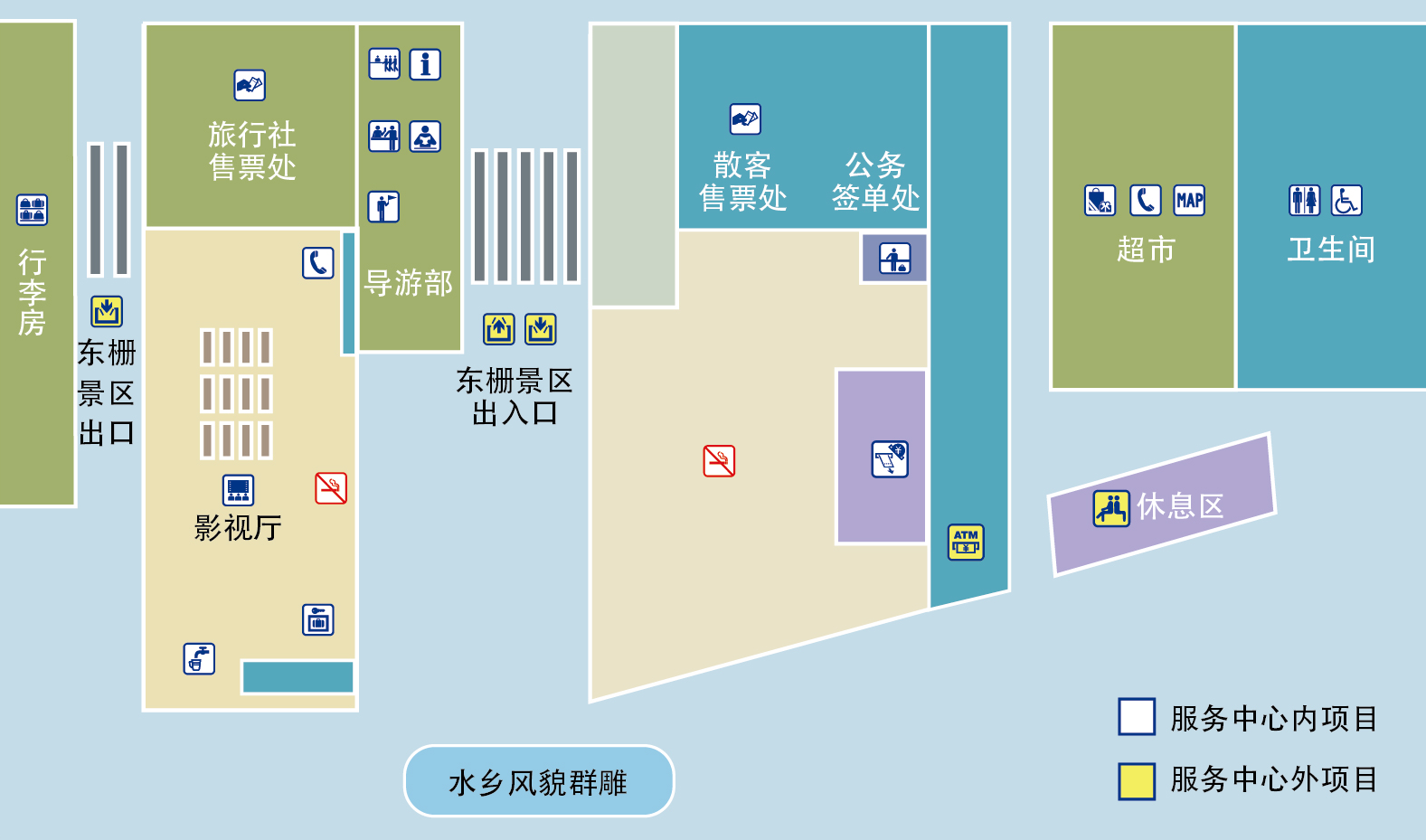

Zhaoming's Study
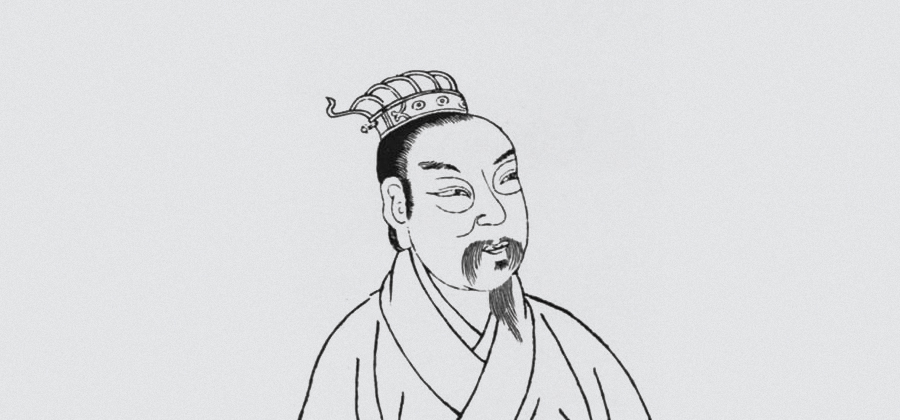
Prince Xiao Tong of Zhaoming was the eldest son of Liang Wudi in the Southern Dynasties. According to legend, when Xiao Tong was just born, his right hand could not be straightened, so Liang Wudi, who was worried, put up a list to recruit talents: Whoever could force apart the hand of the prince, the prince would worship him as a teacher. When Shen Yue, then the Chief of Secretariat, had a try, he took the hand of the Prince and opened it easily. Liang Wudi kept his promise and declared him the Prince’s Shaofu. Shen Yue was a native of Wuzhen, and his father's tomb was located in the northwest corner of Pujing Temple in Shijingtang, west of Wuzhen. Every year on Qingming Festival, Shen Yue went back to his hometown to sweep the grave and watch over it for several months. Liang Wudi was afraid that his son would neglect his studies, so he ordered the prince to accompany him to study. Naturally, he had to have a decent house, so Zhaoming Academy was built.
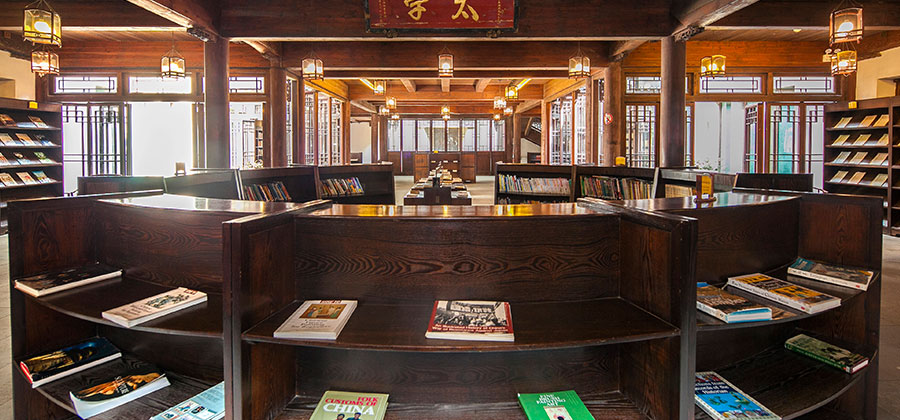
However, when Xiao Tong, a teenager, came to Wuzhen, he was attracted by the beautiful scenery of birds and flowers, and he played all day without making progress. Shen Yue, who was rigorous for his students, telling his students a story: There was a little beggar in Wuzhen, whose parents died early and he was helpless. He begged in the street during the day and stayed in the temple at night. However, Although he was poor, he had ambition, and the money he asked for was used to buy books in addition to eating, and he read them at night under the glass lamp in the temple. But one winter a northwest wind took his young life. When the villagers saw him, he was lying on his back in the straw, his body was frozen, and he was holding a book in his left hand... Xiao Tong was very moved after hearing it, and he studied hard and became a famous writer.
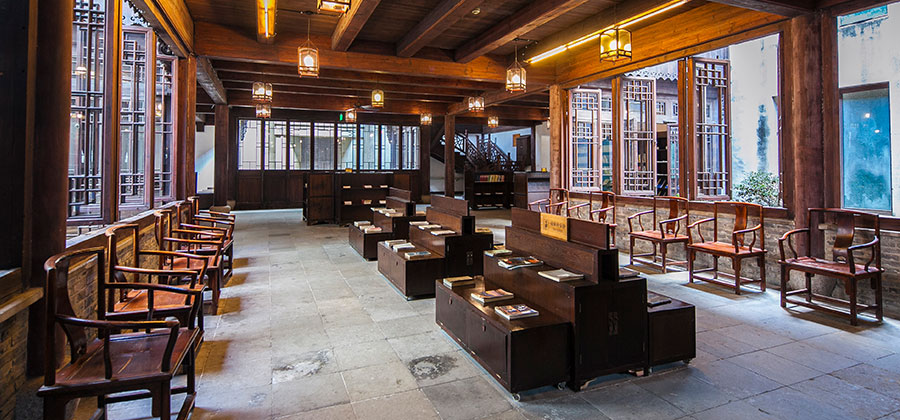
Prince Zhaoming was a litterateur in the Southern Dynasties. In 502 AD (the first year of Tianjian Period), when he was only 2 years old, he was made a prince. Zhaoming was posthumous title after his death, and the world called him Prince Zhaoming. In history, he did not finally succeed to the throne, but his literary name was passed down to later generations. The Selected Works edited by him was the first anthology of poetry and prose in China. For a long time, The Selected Works of Zhaoming, the later The Notes of Classical Chinese, and Selected Works of Writings by the Top Eight Great Writers of the Tang and Song Dynasties were the necessary literary readings for ancient scholars.
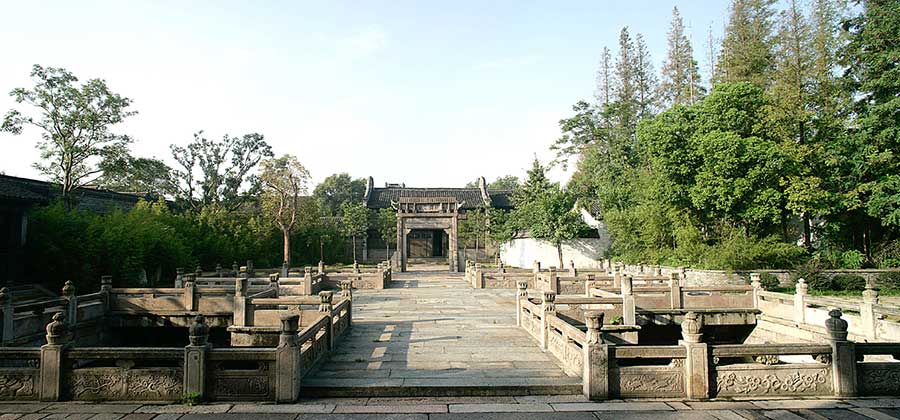
The stone archway in the Zhaoming Academy was built by subprefect Quan Tingxun of Huzhou during the Wanli period of the Ming Dynasty (1573-1620) to commemorate the Prince Zhaoming of the Liang Dynasty and encourage the learning atmosphere at that time. It is entitled "Relics of the Six Dynasties". On the dragon and phoenix board, Shen Shimao, a scholar, inscribed the words: "Reading Office of Prince Zhaoming of the Liang Dynasty and Shen Shangshu". In 1981, it was renovated by the Tongxiang County People's Government and listed as a county-level cultural relic protection unit. This memorial archway is for commemoration and also for carrying forward a kind of learning spirit that has been handed down for a long time. In the Wuqing Town Annals of the Qing Dynasty, the reading office of Prince Zhaoming was called "the beginning of the literary movement of the two towns", which gave a high evaluation.
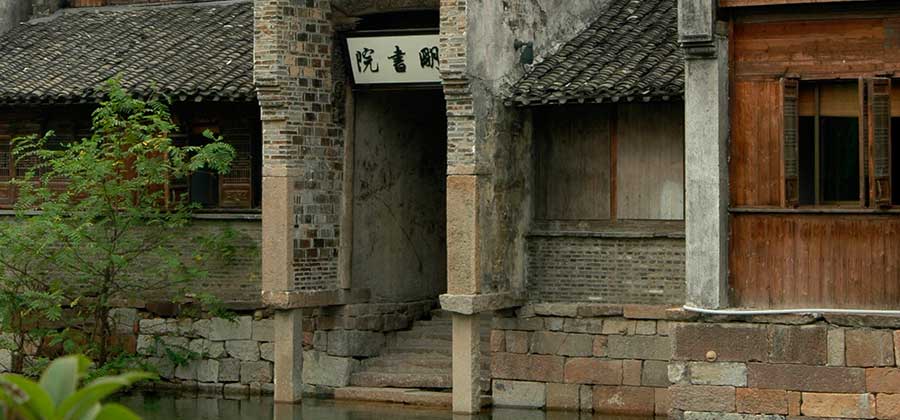
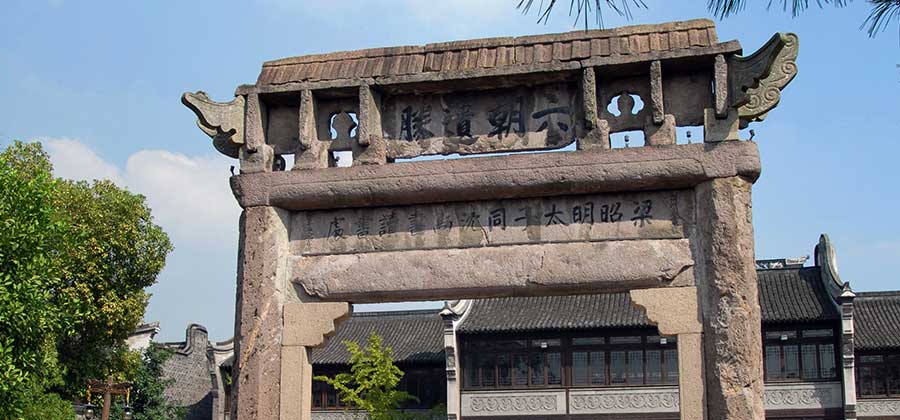
Entering the inner courtyard, we can see that Zhaoming Academy is an antique, elegant and poetic ancient architectural complex. In the middle, we can see a proofreading desk, which is a place for editing and proofreading works, and there are four pools around it. The main building is now a library for local residents and tourists, which contains books and magazines on culture, social sciences, art, leisure and tourism, and has an electronic reading room, lecture hall, calligraphy and painting, classroom and so on. It can be said that it is a veritable West Gate Community. There are also meeting facilities here. If you have any training activities or expansion meetings, you can hold them here. The one next to it is the Fengfeng Pavilion, which is a book bar and a place for people to drink tea, read books and communicate. There is a classic building of Ming Dynasty in the center of the pool. On a cool summer night, you can sit on the open-air hydrophilic platform, tasting a pot of tea and listening to a melody.
Keyword: Zhaoming Academy
